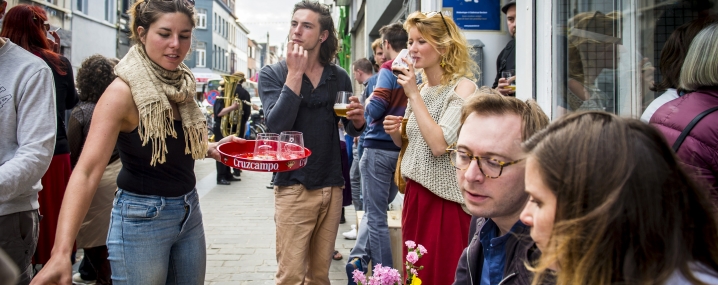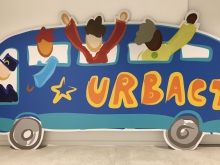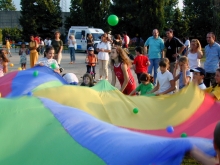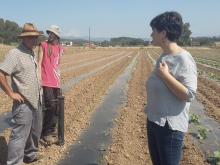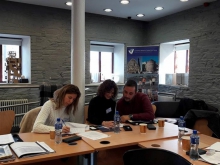URBACT in
Lithuania
Officially there are 103 towns and cities in Lithuania. Two largest cities with the highest concentration of urban population are the capital city Vilnius with approximately 550,000 inhabitants and Kaunas with more than 300,000 inhabitants. Three more cities having over 100,000 inhabitants are Klaipėda (~160,000) which is also country’s only seaport, Šiauliai (~110,000) and Panevėžys (~100,000).
The main urban development issues in Lithuania are:
- Spontaneous urban development and decreasing urban population. Due to the spontaneous urban development cities faced a relatively new phenomenon in Lithuania: gated communities. This chaotic expansion of new settlements also led to the aging urban population: older people stay to live in central part of the city while young families move to the suburban areas.
- Urban sprawl characterised by dispersive urban growth on rural land, low population density, heavy automobile usage (70-90%) and therefore resulting in resource inefficiency, impact on landscape, traffic and air quality problems, etc.
- Development of public infrastructure. Recent real estate bubble, rapid urban development and chaotic expansion of new settlements resulted in fragmentary developed public transport system and social and engineering infrastructure.
- Spatial planning. Taking into account current challenges of urban development in Lithuania spatial planning should be based on integrated sustainable urban policy and aimed at urban densification in order to ensure sustainable development of infrastructure, compact towns and settlements, efficient land use, protection of nature and cultural heritage.
- Refurbishment of housing stock. The downtowns of Lithuanian cities are surrounded by vast Soviet boroughs of apartment blocks accommodating the majority of Lithuania’s urban population. These old and built under low construction standards buildings together with the infrastructure around them now are in need of renovation in order to achieve energy-efficiency targets and ensure comfort for the dwellers.
SOME RELATED NETWORKS
CSI Europe
CSI Europe
The aim of the JESSICA initiative is to support “sustainable investment in cities”. Through the implementation of the initiative, Urban Development...
RetaiLink
RetaiLink
This Action Planning network created strategic plans to enhance the competitiveness of small and/or independent retail businesses, considering them a...
URGE
URGE
URGE, an abbreviation for 'circular building cities' is an Action Planning network on circular economy in the construction sector - a major...
National URBACT Points
Joint Technical Secretariat, Ministry of Interior
Contact: Diana Zaliecke
Useful links
Latest activities
News
23 Transfer networks embarking on the second phase of their journey!
URBACT's Monitoring Committee approved 23 Transfer networks for Phase 2 on 4 December 2018.
Article
Welcome to the European Playful Cities!
Games offer unique opportunities for engaging stakeholders in contemporary cities says Ileana Toscano. While European cities face challenges of...
News
25 Transfer Networks approved!
25 Transfer Networks gathering 75 European cities were approved by the Monitoring Committee of the programme on 4 April 2018.
Article
Two cities united by a love of good food
As URBACT opens its first call for Transfer Networks here’s a story of how a Good Practice from one city was adapted and transferred to a completely...
News
CREATIVE SPIRITS’ partners meet in Waterford
The Second Transnational Meeting took place in the partner city of Waterford on the 23 rd and 24 th of February 2017.

